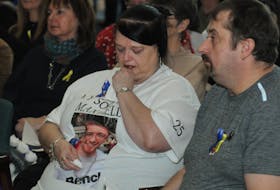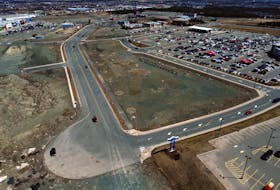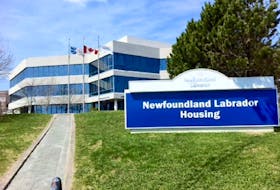
Moreover, Ball said because of the help from Ottawa, the government is changing the controversial deficit reduction levy.
The news conference was packed with Liberal MHAs and federal MPs, as Foote announced that the loan repayments being deferred would amount to more than $250 million.
“Faced with today’s challenges, the last thing that Newfoundland and Labrador needs is loan challenges,” Foote said.
Ball said that this announcement is “much needed relief” against the $266.7 million owed.
The year 2022 is significant, because it’s the year that the Liberal government says the province will return to surplus.
Because the government won’t have to make payments to Ottawa, Ball said that the government is reworking the much maligned deficit reduction levy.
Instead of everyone making more than $20,000 paying the levy, now you’ll only pay if you have an income of more than $50,000.
Finance Minister Cathy Bennett also said that the amounts paid under the levy will be changed, to make it more proportional.
“It eases some of the financial pressures that we are facing,” Ball said.
The province said in a news release, it is increasing the threshold for the levy to $50,000, meaning the number of people that will not have to pay the Temporary Deficit Reduction Levy will increase – now approximately 74 per cent of tax filers will pay no levy. Further, the amount of the levy being paid by those with a taxable income of more than $50,000 will change, making the distribution more progressive.
For example, a person with a taxable income of $55,000 will pay $100 in the annual levy. While someone with a taxable income of $100,000 will pay $700. And, someone with a taxable income of $625,000 or more will pay a levy of $1,800.
Twitter: @TelegramJames








